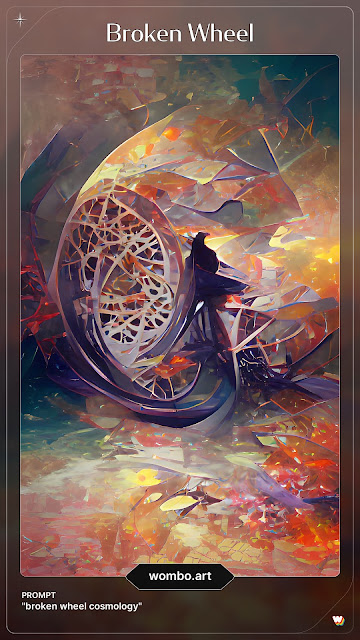D&D’s rules and game culture introduce implied and assumed setting elements to every table – whether that table is planning a rigorously lore-compliant Forgotten Realms adventure or a homebrew with no preconceived setting. Many of these implied elements come from the common fantasy vernacular. But another layer represents D&D’s own accumulated history through its various editions. The art, the presentation, and the rules themselves subtly inform the game in ways many players don't appreciate.
For example, D&D’s planes of existence provide an easy way to gameify and synchronize disparate alternative dimensions, afterlifes, faerie realms, and fantastic planets, drawn from folklore and Appendix N fiction. And the planes of existence go hand in hand with the pantheons of gods that populate them. It allows the game to contain a jumble of disparate elements that would defy belief if they were kitchen-sinked into a single fictional world.
But these planes can feel static and unchanging. Not dynamic, not driven by faction interaction, not open to player meddling. So let’s start with the basic Great Wheel cosmology and make some interesting changes to produce what I call Broken Wheel Cosmology.
Inert Platonic Elements
The four classic platonic elements are a major part of the fantasy vernacular, and come through most prominently in D&D in the four elemental planes. Because they are assumed to be constants underpinning the universe, they can't really change, and that makes them less interesting.
There are various ways to improve them. We could use a five- element system from a source old or new. We could create a four-element pantheon that embodies the weird science fantasy of the setting. Or apply the full periodic table of elements in knowing commentary on genre conventions.
But for a 5E game, I enjoy a system that twists or subverts those assumptions, rather than replacing them outright. So in my Broken Wheel cosmology, the Elemental Plane of Fire has conquered the Elemental Plane of Earth, renaming it New Firelandia. Xorn and Dao live in exile communities, their migrations disrupting other planes as they travel. Air and Water have formed an uneasy alliance against this new power. The assumption that the four planes needed to be in some kind of cosmic balance to preserve the metaphysics of reality turned out to be… wrong, and now all bets are off as to what could happen next.





No comments:
Post a Comment